7:00AM to 5:00PM
Nothing is more frustrating than a shower drain that doesn’t drain properly. Whether it’s a slow drain or standing water that won’t disappear, drain clogs are annoying.
This post’ll look at the most common causes of blocked shower drains. More importantly, we’ll provide tips to prevent blockages from occurring. By understanding what leads to drain clogs, you can keep your shower functioning flawlessly for the long run.
Several typical culprits can lead to drain clogs over time. The most frequent offenders are hair, soap scum, debris and mineral deposits that obstruct the drain pathway if not appropriately managed. Let’s take a closer look at some of the main drain-clogging culprits:
Hair clogs are one of the biggest culprits due to their ability to wrap around themselves. Even short strands can bind together beneath the strainer and in the trap beneath the tub or shower. Over many uses, these collective hair clumps harden into waxy plugs that choke the drain completely.
The residue left behind daily showering mixes with minerals in hard water to form sticky soap scum. When it’s allowed to build on the sides of the tub and drain surfaces, this grime hardens into rocks that easily block small drain openings.
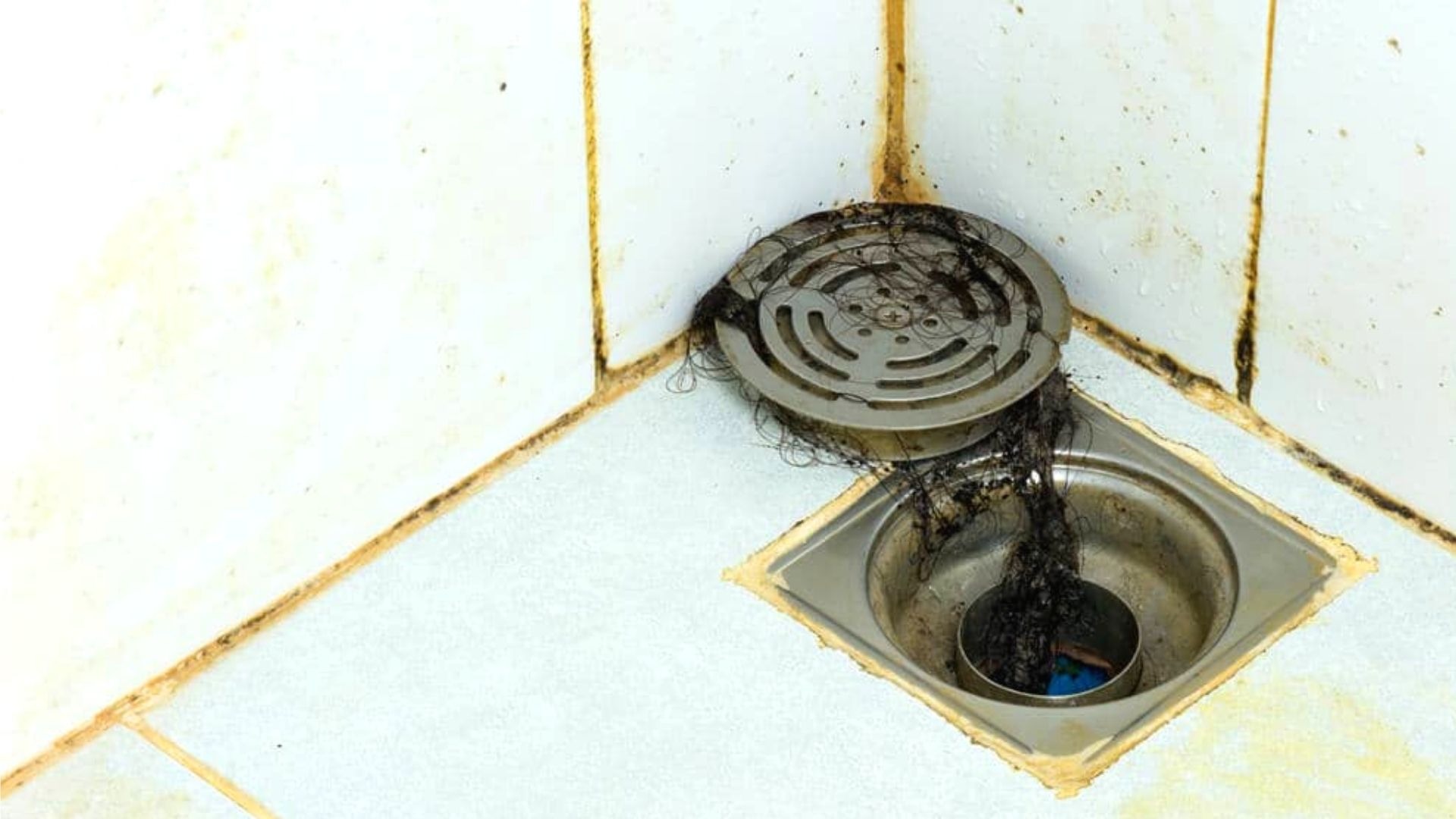
Exfoliants, loose bath bombs, bath toys, and errant fingernail clippings can slip through the strainer unnoticed. Settling in the trap area over time, these miscellaneous items bind together through corrosion to create jam-like clogs.
Where water hardness levels are high, minerals like calcium and lime accumulate inside pipe surfaces. While usually lightweight, these chalky fragments join together and adhere to other particles to majorly restrict flow.
There are a few telltale signs that your shower drain may be experiencing a blockage. The most noticeable is slow drainage – if water isn’t disappearing down the drain as quickly as usual, it’s a fair indication that flow is obstructed.
Another obvious sign is standing water that lingers after use instead of disappearing promptly. You may also experience backup issues where water piles above the usual waterline or overflows onto the shower floor.
Drain clogs may also cause gurgling or bubbling noises from the pipework as water struggles to pass through a clogged pathway. Please pay attention to these red flags, as they can be early warning signs of a minor blockage before it worsens or requires a professional plumber. Addressing drainage problems promptly helps prevent further deterioration of the clog and the need for more extensive repairs.
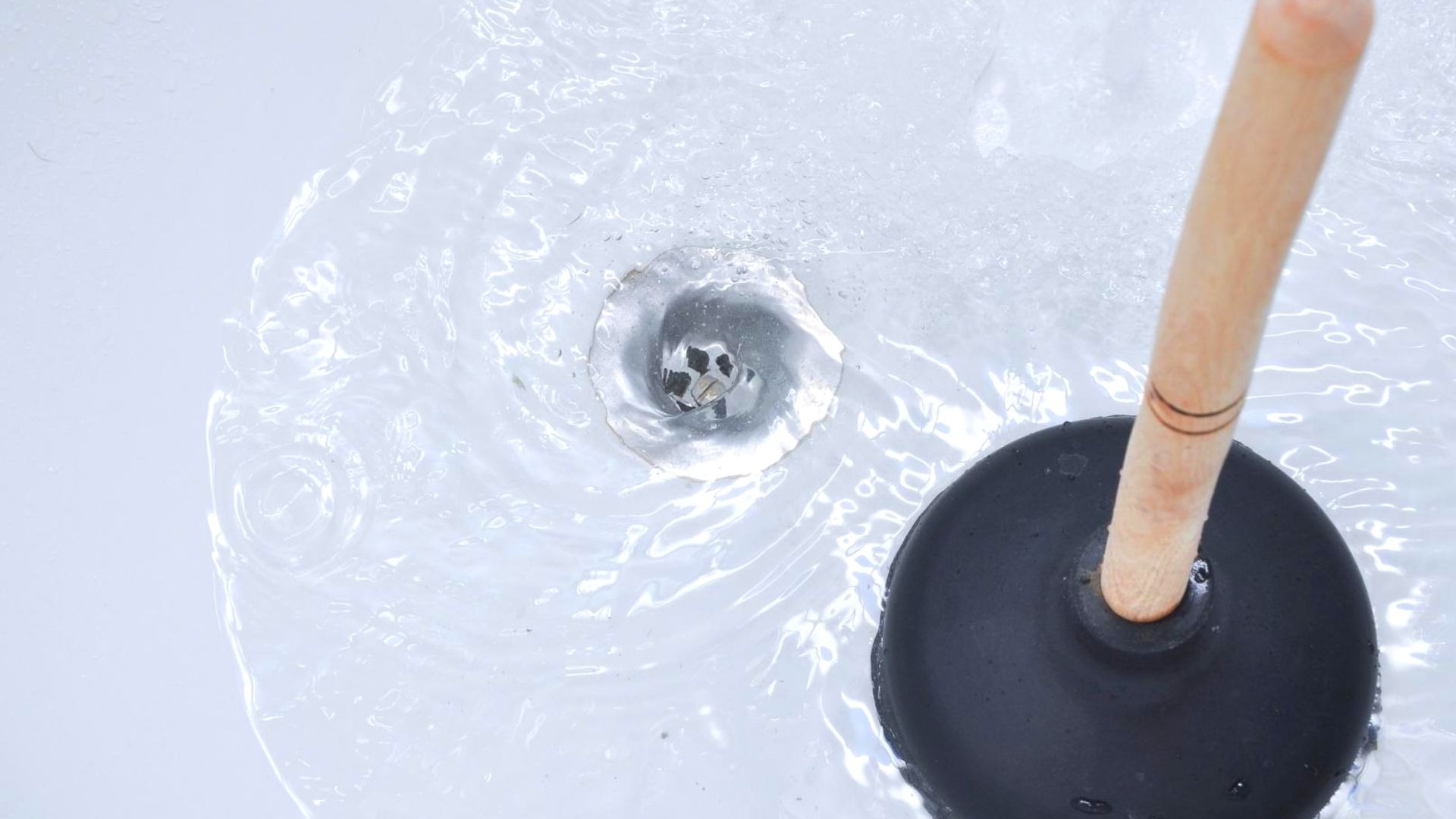
You can take some simple steps to prevent drain clogs from forming in the first place. Maintaining your drain regularly by removing hair and debris from the grate and pouring baking soda followed by vinegar down the drain once a week helps cut through grease and soap scum build-up.
You should also catch hair before it can slide down the drain by cleaning the shower after each use. With some luck, you can remove the drain cover and pull it out by hand. Using specially formulated drain cleaners, augers, or snakes once a month will dislodge any emerging blockages.
Additionally, fix any loose or leaking faucets and ensure all caulk and grout around your bathtub is sealing well to avoid excess moisture that can contribute to long-term clogs. Low-effort preventative strategies are the best way to keep your shower drain running freely.
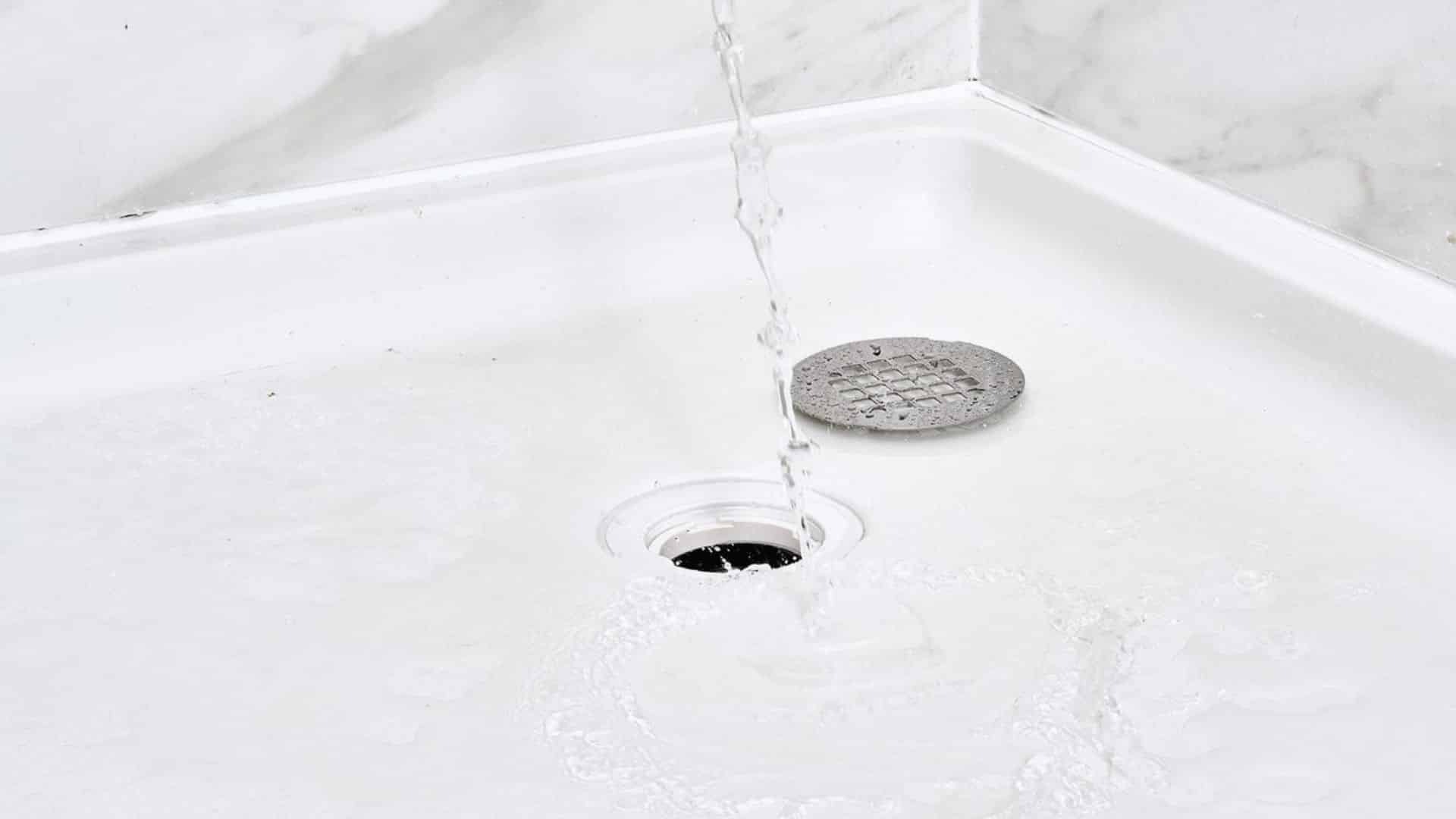
If you notice signs of a drain clog, don’t panic—there are some steps you can try at home before calling a plumber. For minor blockages, vigorously plunge a plunger over the drain opening.
The powerful suction may dislodge hair or loose debris. You can also try using a drain snake – a long, flexible tool that can manually pull out built-up gunk.
For stubborn clogs, carefully pour a chemical drain cleaning solution down the clogged drain and let it sit for 30 minutes before flushing with boiling water. This should break down grease, soap scum and other deposits.
If a plunger or snake doesn’t work, it may be time to contact a plumber for more advanced blockages deeper in the pipes. With any method, clear build-up from the overflow and the central drain opening.
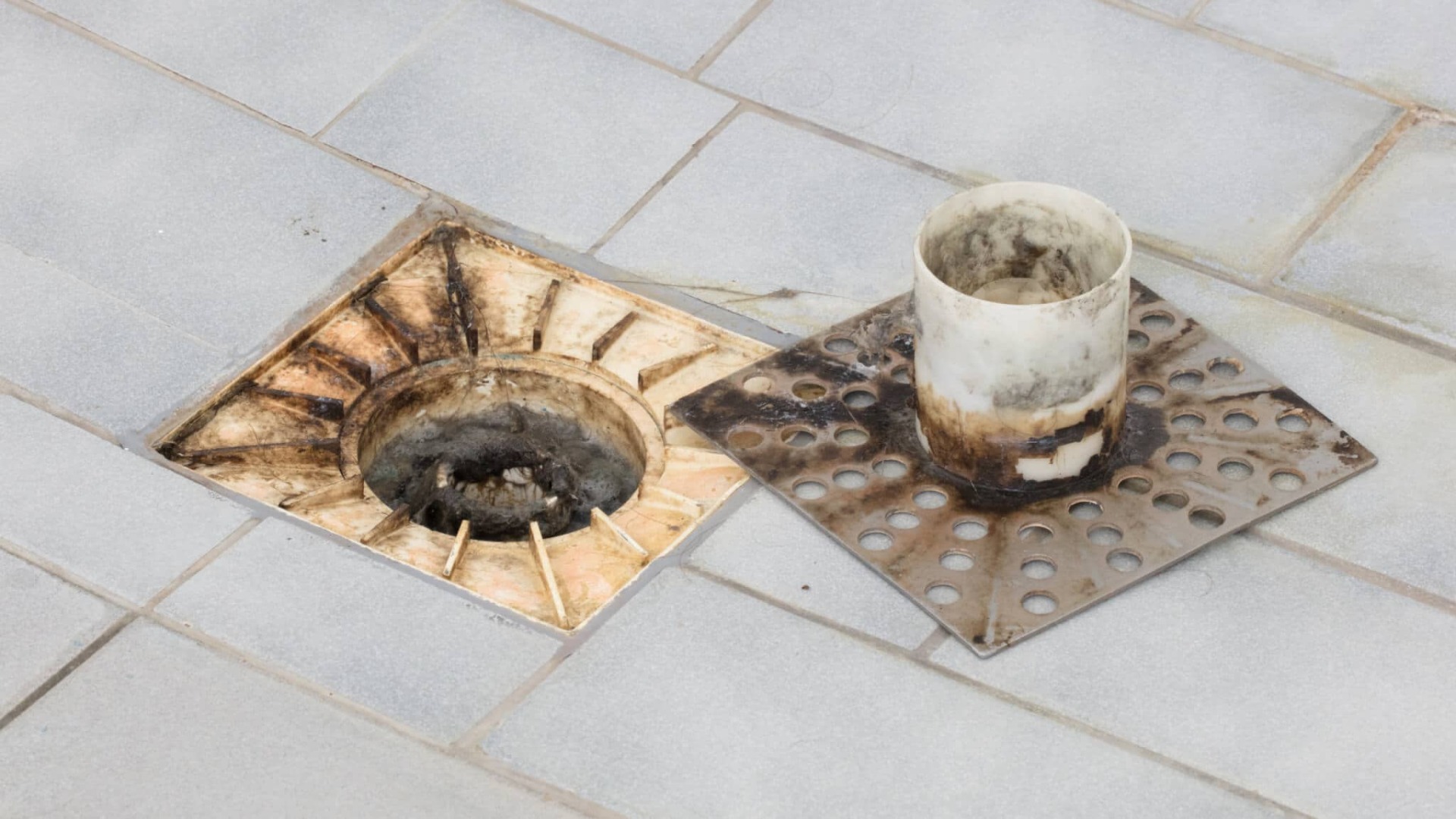
Set up a regular maintenance routine to keep your shower drain running smoothly. Aim to thoroughly clean the drain area once a month by removing the strainer and cleaning out any accumulated hair and debris trapped behind it. Here are a few ways to remove a shower drain clog and prevent them in the future.
Be sure to wipe down the sides of the bathtub to minimise mould growth. A monthly drop of baking soda followed by vinegar will also help limit soap scum and mineral build-up over time.
Always wipe up excess water after showering and fix any leaky faucets. You should also periodically check pipe connections for leaks that can cause damp-related issues.
Limiting harsh chemicals, draining excess hair, and promptly addressing minor problems will help your drain last many years with minimal risk of costly blockages.
A clogged shower drain should be fine for homeowners with proper maintenance and care. By understanding the typical causes of drain clogs and implementing simple prevention strategies, your shower will continue draining efficiently. However, drain issues can sometimes require professional help to resolve completely.
If you encounter stubborn blockages or slow drains, don’t hesitate to contact Gold Coast Plumbing Company. As a local plumbing contractor serving the Gold Coast area for many years, our team has the experience and tools to diagnose drainage problems quickly and clear clogs in your shower or tub.
We can also inspect your entire plumbing system and identify any issues that could lead to future clogs. Give us a call today to discuss your particular drain concerns and to schedule affordable plumbing services. Keeping drains flowing freely is our specialty.
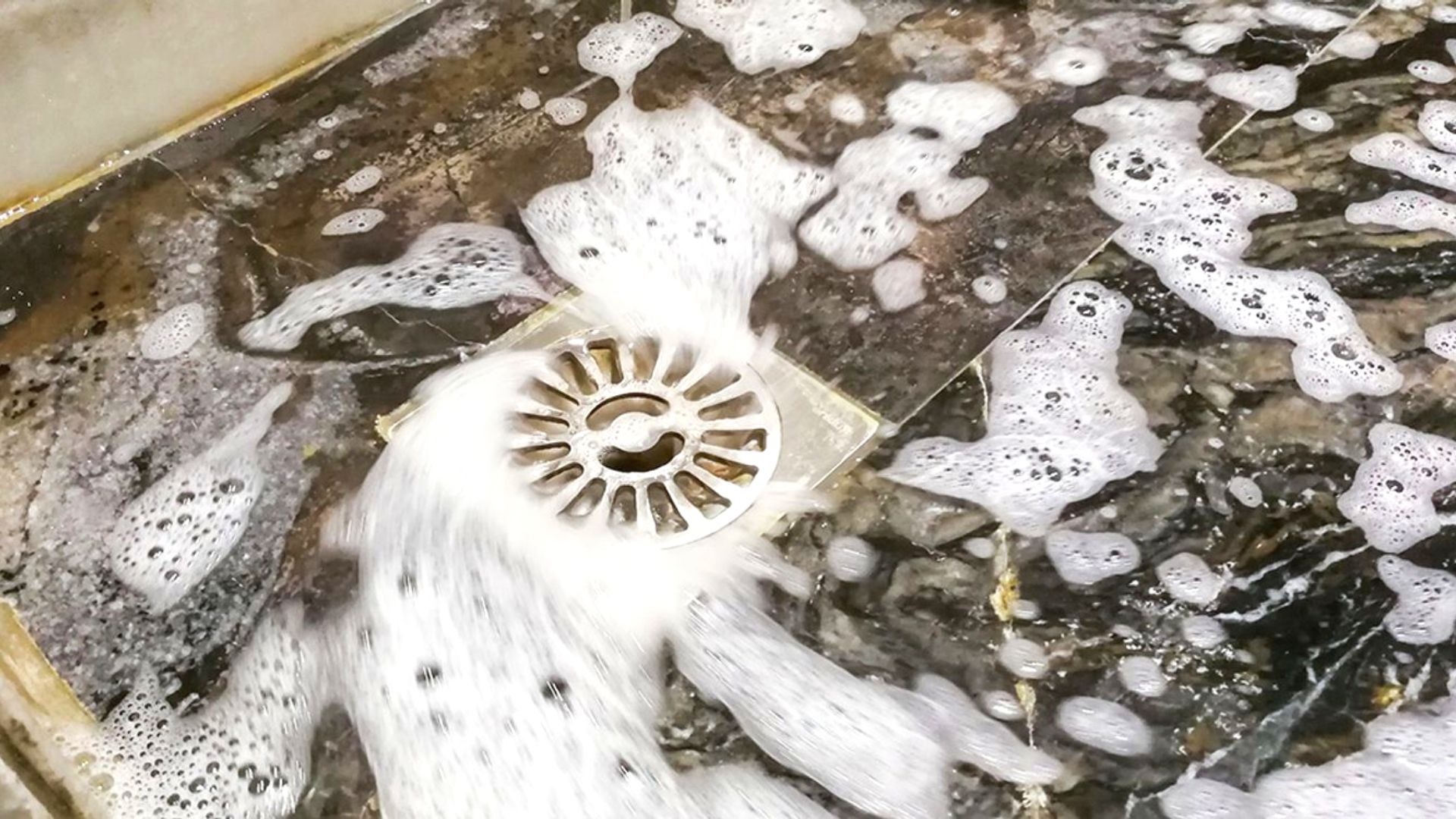
There are a few main reasons drains may clog faster than expected. Using boiling water can cause soap scum and hard water deposits to build up at a quicker rate. Not cleaning out hair properly after each shower allows more hair to accumulate over time. Old plumbing with mineral deposits or tub or drain issues can also make blockages more likely to develop rapidly.
Some minor slowness is normal as minor build-up occurs gradually. However, if drainage is noticeably slower than usual or leaves standing water, it’s best to take preventative action. Catching potential blockages early through regular cleaning helps prevent further deterioration of flow.
Using a drain auger may provide the torque needed to rotate stubborn buildup-free for shower drain clogs that a snake, wire coat hanger, or cleaner can’t break through completely. It’s inserted into the drain and cranked manually to grab, pull out and remove debris that may have compacted deeply over time.
There’s no foolproof way to prevent mineral build-up from hard water. However, using a water softener system can reduce the levels of calcium and magnesium entering your home plumbing. Pouring vinegar down drains regularly also helps break down deposits that form slowly before accumulating significantly.